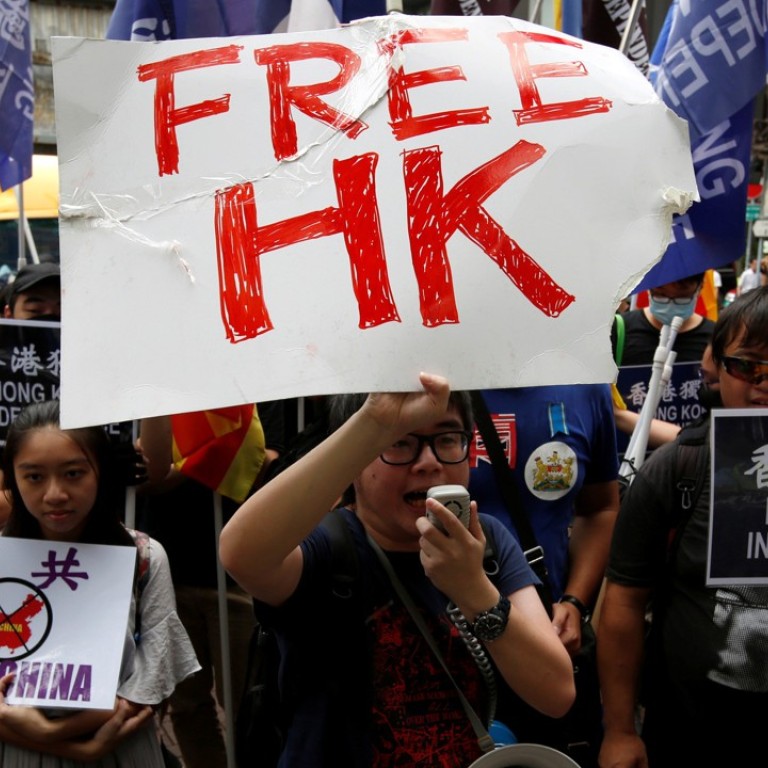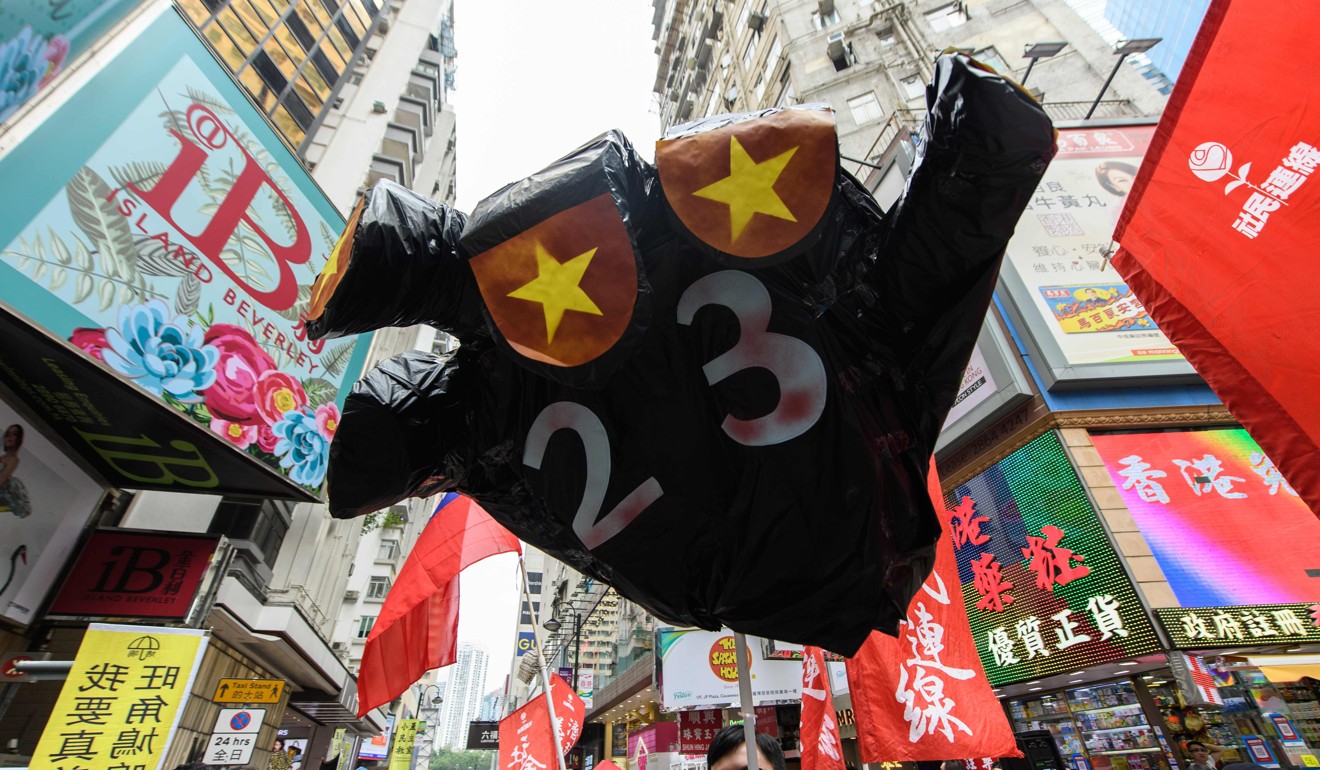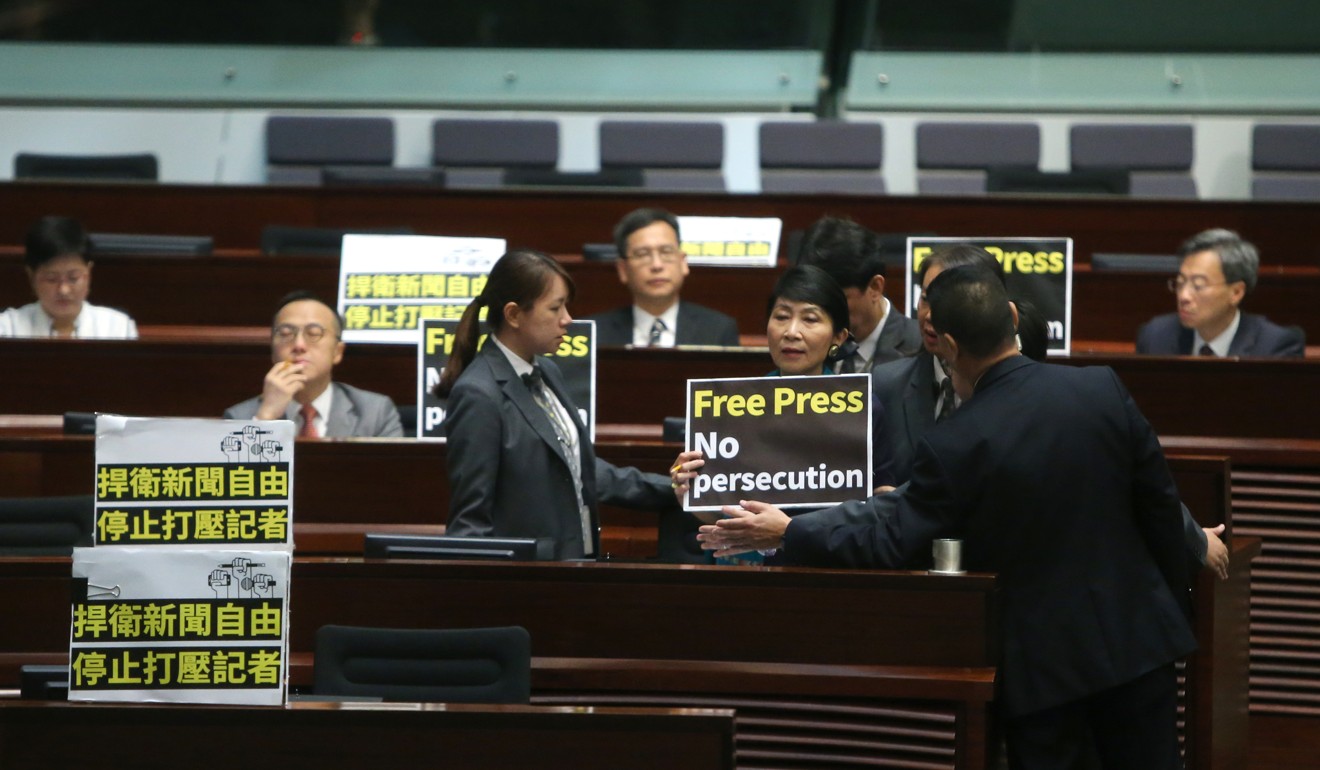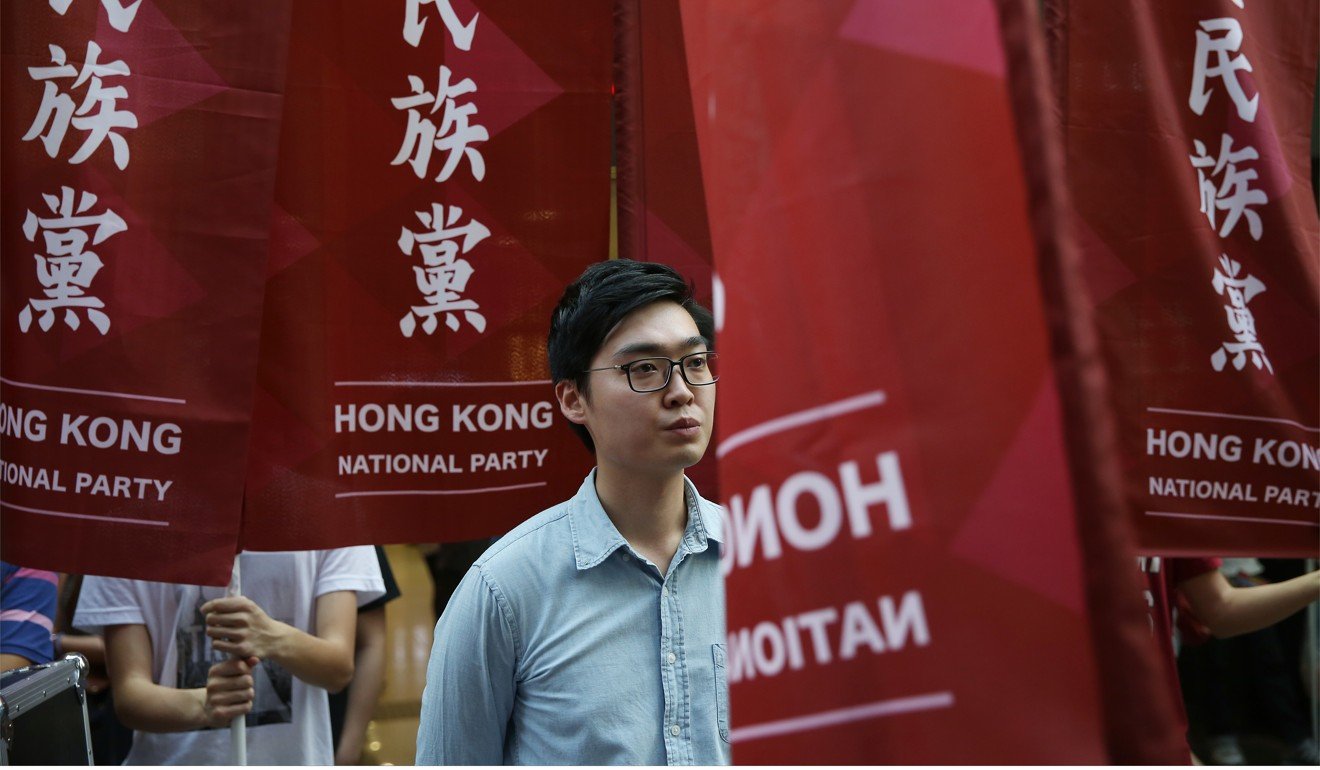
Punishment awaits Hong Kong independence advocates amid efforts to make Article 23 passage more likely, Carrie Lam says
No timetable set for highly controversial national security legislation, top official adds, but recent banning of separatist party cited as ‘strong testimony’ to government’s resolve
Hong Kong’s leader has vowed to “fearlessly” punish independence advocacy using existing laws while continuing to cultivate an environment favourable for introducing contentious national security legislation.
“I have stated publicly a number of times that the government will carefully consider all relevant factors, act prudently and continue its efforts to create a favourable social environment for the legislative work,” Lam said on Wednesday in her second policy address since taking office in July last year.

“Yet this does not suggest we will turn a blind eye to acts violating the constitution [of China] and the Basic Law, attempting to secede from the country and endangering national security.”
Neither would laying the groundwork for the law against treason, secession, sedition or subversion include restarting efforts to win universal suffrage for Hongkongers, Lam said.
“It is not logically sound for universal suffrage to come before national security legislation,” Lam said, during a question-and-answer session with reporters later.
Five key takeaways from Carrie Lam’s policy address
Lam said the national security legislation should have been enacted as soon as the Basic Law came into force, when Hong Kong passed from British to Chinese rule in 1997.
“To select the chief executive by universal suffrage is an ‘ultimate aim’ as stipulated in Article 45 [of the Basic Law], which means it can be realised in 10, 20 or 30 years,” she said.
The city last launched a political reform bid in late 2013 that would have gone some way towards universal suffrage, but a rigid framework imposed by China’s top legislative body prompted opposition pan-democrats to block its passage in the Legislative Council in 2015.
In Lam’s first policy address last October, she said she understood the aspirations of the community, especially younger people, for universal suffrage.
She promised to do her best to take forward political reform “within the framework of [the National People’s Congress Standing Committee decision]”.
Asked on Wednesday why she had not touched on policy reform in her speech, Lam said: “That is to bang my head against the wall. I would not bang my head against the wall. If I do so, the one who gets hurt will not be me, but Hong Kong society.
“In the last term of government, I was in charge of the political reform task force. I saw with my eyes how badly hurt the society was because of political reform. And it has not fully recovered.”
In her speech on Wednesday, she made clear that she would continue to listen to public views “earnestly and explore ways to enable Hong Kong society to respond positively” to Article 23 legislation.
In a message aimed at opposition lawmakers, she added: “I would not harbour an unrealistic wish that all our political parties or members of this council will share the same political stance, yet so long as the principle of ‘one country’ is not compromised, there should be plenty of room for collaboration.”
Lau Siu-kai, vice-chairman of semi-official think tank the Chinese Association of Hong Kong and Macau Studies, said the government was under mounting pressure to legislate on national security, but it had multiple considerations.

“On the one hand, the government doesn’t want to rush the legislation, as it worries it might trigger new social unrest and affect its relations with the West,” he said. “On the other hand, China is facing more national security threats as international tension rises, and the pro-Beijing camp in Hong Kong has been issuing stronger calls for the law.”
Lau said the push to handle separatism using existing laws could be part of government efforts to “prepare the ground” for Article 23, but this approach was “not systematic enough”.
“The government has to raise public awareness of national security issues,” he said.
Democratic Party chairman Wu Chi-wai said an Article 23 law was likely to be more far-reaching and severe than the previous attempt to legislate in 2003 because the government would have a clearer picture of what could not be punished by the existing framework.
“This is exactly what worries us most,” Wu said. “Such legislation will definitely harm freedom of speech and the press.”

Wu said the HKNP ban and denial of Mallet’s visa had affected the city’s international image.
“Hong Kong may eventually become caught in the middle amid a worsening China-US trade war, which will harm Hong Kong’s interests,” Wu said.
Wu also warned of more serious polarisation in Hong Kong, noting that Lam appeared to have prioritised national security legislation over electoral reform.
“Actually both are constitutional responsibilities of the government but Lam’s administration has shown no interest in seeking public consensus for carrying the political reform forward,” Wu said.
But Lau believed the government was still unable to lay down a timetable for Article 23 because “the overall legislative environment is not becoming more favourable, and Lam cannot control the deteriorating international environment”.
A government source denied Lam’s administration had been pressured on a national security law.
“There is no sign of the government launching any consultation on the legislation after the Legco elections of 2020,” the source said.
No internal working group had been set up to study the issue, he added.
Additional reporting by Alvin Lum, Kimmy Chung and Gary Cheung

